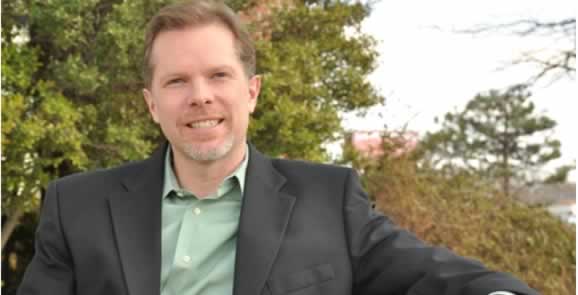We spoke with Ron Deal about his book, The Remarriage Checkup.
Ron, there are tons of marriage books out there today. What’s different about this one?
There are very few books that address remarriage. Most people make the assumption, Well, isn’t remarriage the same? And that’s exactly why David and I co-authored this book. It’s based on the largest study of remarriage strengths that has ever been done. We studied 50,000 couples, if you can imagine — a hundred thousand people in our dataset — and it was as we expected. There are some things that are the same in remarriages as they are in first marriages, but there are also some qualities and attributes that are considerably different.
The absence of some qualities, or the presence of some negative ones that are unique to remarried couples, really makes or breaks the relationship. Marriages are not all created the same, and they do require some individualized or tailored education and enrichment. That’s really what this book The Remarriage Checkup does.
So this would be a good resource for couples considering a re-marriage.
We wrote the book realizing that couples were going to read it at different phases or different seasons of their relationship. If couples are dating, if they’re engaged, or if they are already married — it doesn’t matter how long they’ve been in a remarriage situation — it is applicable to them.
Another uniqueness of the book is it integrates an online relationship profile. This profile called the Couple Checkup is something I know your ministry is aware of and you make use of on your Web site as well. David Olson, my coauthor, is the innovator of that online relationship profile and it’s been used all over the world. It’s one of the most respected relationship profiles. We’ve integrated that into the book so that couples are able to go online, take the online inventory, and get a report of their relationship. We liken this to a GPS. We call it our couple positioning system. It tells you exactly where you are. Then you can decide the destination — where you want to go, building intimacy and strengthening your relationship — and the profile in the book helps you decide which steps and the direction you need to take to deepen the bonds in your relationship. It’s really a very dynamic, interactive learning process.
In Remarriage Checkup you target the couples relationship.
Right. We put a laser on what it is to be married, remarried or married to somebody who is remarried.
There are lots and lots of people who are getting married for the first time in life, but they are marrying somebody who has been married before — often bringing children into the marriage. Remarriage relationships are very unique and no one has ever zeroed in on the way we did in this particular study. The focus of our study was not on what is wrong. The focus was on what’s right. What works for remarried couples. What predicts great long-term relationships? And that’s essentially what we did.
Imagine 50,000 couples. We pulled the top 15% of the highest quality relationships and the lowest quality relationships — what I like to call the masters and the disasters — and we compared them, looking for predictors of a great relationship.
Obviously, this is combined with biblical wisdom and an understanding of relationships has a good value center. But all truth is God’s truth. Wouldn’t you know what we found is that the research validated many things that we know from Scripture.
Ron, what are the predictors of a successful remarriage?
Here’s the big picture. The Remarriage Checkup, is actually the second book of a two book series. The first book called The Couple Checkup is the result of another study of 50,000 couples. Those two studies are the largest ever done — one on marriage, one on remarriage. When you compare the top five qualities that predict great relationships, they are the same between married and remarried couples.
For example, communication skills and the ability to manage conflict were in the top five on both lists. That’s a given, because we know that communication is like oil in the engine. If you don’t have any oil in the engine, the parts are not going to work well. That made sense to us.
But there were a couple of things that were unique. For example, in our remarriage study, the number one predictor had to do with negative personality issues that can sometimes take place in relationships — things like being critical of your partner, having a temper, being moody — and the one that bubbled to the surface was jealousy.
We took a deeper look into what jealousy is and we found that it’s really about fear. The fear of another relationship breakup was one of the top predictors of remarriage success. That makes sense because in a second marriage somebody — maybe both or at least one of the partners — has been hurt before. It could be pain from a divorce or grief from the loss of a spouse. That person has gone through some difficult, trying times and now they are in love again. As good as that is, it comes with a bit of fear; and as fear goes up, relationship quality goes down. The opposite is also true: as fear comes down, relationship quality goes up.
That is an issue that is unique to remarriage. Oftentimes couples in first marriages have some fears — could be residue from life or scars from childhood — but fear seems to be even more of an issue in remarried couples.
Ron, do you have a statistic on remarriage success?
We know the divorce rate, in general, is around 50% in the U.S. Remarried couples have a 60% divorce rate and remarried couples in step families — that is where there are stepchildren involved — have a divorce rate of about 66%. So you flip that over and you say about one-third of remarried couples will go the distance.
The odds of people doing well all by themselves without any information on their side to help them overcome those challenges is rather small. That’s another reason why we did this. We want to prevent not just divorce, but re-divorce. We want to help couples have relationships that go the distance.
Does remarriage without kids stand a better chance of success?
Statistically it does; and relationally from a quality standpoint, it does. There are less complications. Seven of the top 12 predictors were related to the couple’s past or whether they have stepchildren in the present. So issues related to hurtful previous relationships or children being involved are going to add stress to the relationship. Seven of the top 12 were related to those issues. If you remove those step parenting or ex-spouse issues, it helps. There is less complication, but still there are unique challenges.
What qualities do you see in strong remarried relationships?
The first thing would be the absence of those negative issues we talked about. Then communication and conflict are right up there at number two and three. Number four was really interesting to us because there is a difference between remarried and married couples: it was leisure activities, a couple enjoying one another, having some downtime together. All healthy couples have some individual leisure time where she may play golf and he hangs with his buddies and plays cards, but what we found was couples needed leisure time spent together.
We pondered and asked ourselves, why is that more important in remarriage than it is in first marriage relationships? My theory is that it’s the anecdote to stress. It’s the fun factor. Having fun together as a couple is helpful when you’re dealing with stressful situations, maybe related to kids or step parenting or finances left over from previous relationships. You’ve got to have something that feeds your heart for one another and, interestingly enough, it seems to be more important in remarriage.
If a couple talks with you about re-marriage, what things do you want them to understand?
One of the things I want them to know is there is some uniqueness to heading into this new family situation. I want them to understand they’ve got to know as much about being a step family as they do about being a couple.
Unfortunately, that’s where a lot of churches are going wrong these days. They’re doing their pre-step-family counseling or pre-remarriage counseling the same way they’re doing their first marriage premarital counseling — and they’re really two different animals. It takes so much more to educate that remarriage couple.
I’ll paint them a picture about stepfamily living. I’ll help them understand the complications so they don’t get blind sided
I’ll start a conversation with them about what they have learned about themselves through the losses they’ve experienced — if they’ve been through a divorce or have been widowed — so they’re not repeating the same behaviors coming into this new relationship.
Finally, if there is a partner who has never been married before — doesn’t know loss, doesn’t know what it is to be a parent, perhaps, or doesn’t understand the complications of family life — this person will not only become a partner but maybe a parent. I’ll help them understand how challenging that can be.
Most couples don’t envision being a step parent. So we want them to be able to understand what that means for them and how they can manage that with integrity.
Ron Deal is the co-author of The Remarriage Checkup: Tools to Help Your Marriage Last a Lifetime.
Copyright © 2010 by Jim Mueller, President and co-founder of Growthtrac Ministries.
[schemaapprating]


 Jim is the founder, with wife,
Jim is the founder, with wife, 







